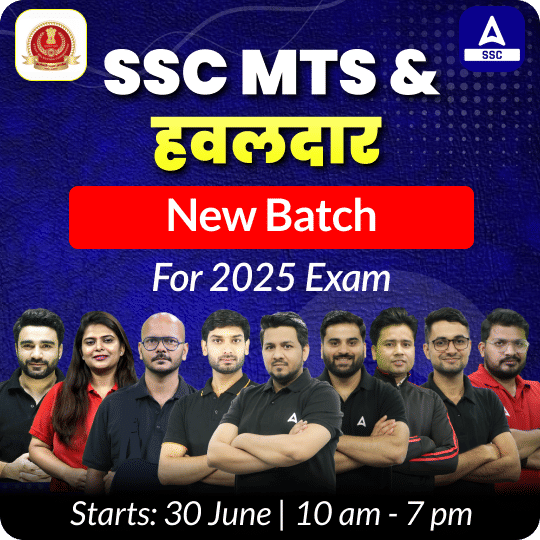The SSC CHSL (Combined Higher Secondary Level) Exam is one of the most competitive government exams in India, offering opportunities in various ministries, departments, and organizations. To secure a high score and improve your chances of selection, candidates need a well-planned strategy and disciplined preparation. Here are some professional and practical tips to help you score maximum marks in the SSC CHSL Exam.
Understand the SSC CHSL 2025 Exam Pattern
The SSC CHSL 2025 selection process will consist of two tiers:
| Tier | Type | Mode |
|---|---|---|
| Tier I | Objective (Multiple Choice Questions) | Computer-Based |
| Tier II | Objective (Multiple Choice Questions) + Skill Test (New Pattern) | Computer-Based |
SSC CHSL Tier 1 Structure:
- Mode: Online (Computer-Based)
- Total Questions: 100
- Total Marks: 200
- Time Duration: 60 Minutes
- Negative Marking: 0.50 marks for each wrong answer
| Section | Number of Questions | Maximum Marks |
|---|---|---|
| General Intelligence | 25 | 50 |
| English Language | 25 | 50 |
| Quantitative Aptitude | 25 | 50 |
| General Awareness | 25 | 50 |
| Total | 100 Questions | 200 Marks |
The Tier 1 question paper will be available in both English and Hindi, except for the English Language section.
Build a Practical Preparation Schedule
With the exam dates confirmed, it is crucial to prepare with a well-defined and realistic study schedule. A structured timetable helps in covering the entire syllabus while allowing sufficient time for revision and practice.
- Allocate specific time slots for each section.
- Include short breaks to avoid burnout.
- Keep the study plan achievable and flexible for adjustments.
Section-wise SSC CHSL Preparation Tips
1. General Intelligence
- Focus on sharpening logical reasoning skills.
- Practice solving puzzles, seating arrangements, and series problems.
- Do not spend too much time on any single question.
- Develop the habit of solving questions based on the data provided.
2. English Language
- Build a strong vocabulary through regular reading of newspapers and books.
- Focus on improving grammar, especially areas like tenses, subject-verb agreement, and prepositions.
- Practice reading comprehension, error detection, and cloze tests.
3. Quantitative Aptitude
- Strengthen your understanding of basic concepts before attempting complex questions.
- Practice quick calculation techniques and shortcuts.
- Focus on time management while solving numerical problems.
4. General Awareness
- Regularly read newspapers and follow reliable current affairs sources.
- Prepare short notes for revision on important topics such as national events, international affairs, government schemes, awards, and important dates.
- Prioritize static GK along with current affairs.
Importance of Solving Previous Year Papers and Mock Tests
Attempting previous year question papers helps candidates:
- Understand the difficulty level of the exam.
- Identify frequently asked topics.
- Learn time management for each section.
Regular mock test practice is equally important as it helps:
- Evaluate preparation progress.
- Identify weak areas.
- Adapt to the updated exam patterns and question trends.
Mock tests also help candidates develop the ability to solve questions quickly and accurately under timed conditions.
Consistent Revision Strategy
Revision plays a critical role in retaining key concepts. A well-planned revision cycle will enhance memory retention and improve performance under exam pressure.
A sample revision plan:
- Day 1: Learn the concept
- Day 2: First revision
- Day 7: Second revision
- Day 21: Third revision
- Day 30: Final revision
This repetitive approach ensures the concepts are well-engrained in memory.
Importance of Handwritten Notes and a Mistake Book
Creating handwritten notes allows quick and effective revision. Personalized notes help candidates revise efficiently in the final days before the exam.
Maintaining a ‘mistake book’ is highly recommended:
- Record mistakes made in practice tests and daily exercises.
- Review the mistake book regularly to ensure the same errors are not repeated.
- Track progress and continuously work on weak areas.
The preparation tips shared here are structured to help candidates build an effective and personalized strategy for the SSC CHSL Exam. It is important to remember that consistent effort, regular practice, and disciplined revision will significantly improve your chances of securing high marks.
Candidates should assess their strengths and weaknesses and tailor their preparation plans accordingly. Staying focused, practicing regularly, and maintaining a positive attitude will lead to success in the SSC CHSL Exam.




 SSC CGL Study Material 2025, Download No...
SSC CGL Study Material 2025, Download No...
 SSC CHSL Posts List, Salary Structure, a...
SSC CHSL Posts List, Salary Structure, a...
 SSC CHSL Full Form (Staff Selection Comm...
SSC CHSL Full Form (Staff Selection Comm...



 Adda247 Job portal has complete information about all Sarkari Jobs and Naukri Alerts, its latest recruitment notifications, from all state and national level jobs and their updates.
Adda247 Job portal has complete information about all Sarkari Jobs and Naukri Alerts, its latest recruitment notifications, from all state and national level jobs and their updates.